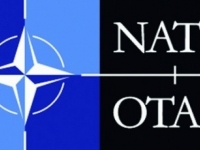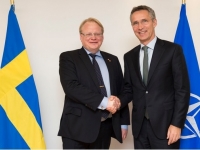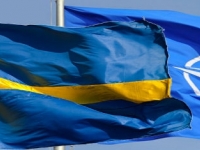Politics
NATO Deputy Secretary General
Visit to Sweden

NATO Flag (Source: © NATO)
USPA NEWS -
NATO Deputy Secretary General stresses importance of shared values in visit to Sweden. NATO and Sweden actively cooperate in peace and security operations and have developed practical cooperation in many other areas including education and training, and defence reform.
NATO Deputy Secretary General Alexander Vershbow welcomed Sweden´s deep partnership with the Alliance in a visit to Stockholm on Friday (12 June 2015). “The reason Sweden is such a close and long-standing partner of NATO is not simply because we face the same challenges but because we share the same values,“ he said. In a speech to the “Folk och Försvar“ (People and Defence) forum, Ambassador Vershbow called Sweden´s cooperation with NATO a “win-win situation for us all,“ saying “we share the same dedication to building a safer and more secure world.“
The Deputy Secretary General warned that both NATO and its partners face a deteriorating security situation in the Middle East and North Africa; “the ongoing threat of terrorist attacks“ on our streets; and a resurgent Russia undermining the peaceful order in Europe. Ambassador Vershbow underlined that NATO is “responding to the rising security challenges in the east and the south“ by reinforcing its collective defence. He stressed that NATO must be ready to work closely with partners to deter and defend against new challenges, including hybrid threats.
Later on Friday, Ambassador Vershbow delivered remarks at the Institute for Security and Development Policy on NATO and its relations with East Asia. “Both East Asia and Europe face an increasingly volatile security environment,“ he said. “By supporting our partners across the globe ““ near and far, practically and politically ““ the NATO Alliance can help to foster stability around the world.“
While in Stockholm, Ambassador Vershbow also had separate meetings with Foreign Minister Margot Wallström and Defence Minister Peter Hultqvist.
While in Stockholm, Ambassador Vershbow also had separate meetings with Foreign Minister Margot Wallström and Defence Minister Peter Hultqvist.
NATO´s relations with Sweden -
Swedish cooperation with NATO is based on a longstanding policy of military non-alignment and a firm national consensus. From this basis, Sweden is not pursuing NATO membership, but selects areas of cooperation with NATO that match joint objectives.
The Allies view Sweden as an effective and pro-active partner and contributor to international security, which shares key values such as the promotion of international security, democracy and human rights.
Swedish cooperation with NATO is based on a longstanding policy of military non-alignment and a firm national consensus. From this basis, Sweden is not pursuing NATO membership, but selects areas of cooperation with NATO that match joint objectives.
The Allies view Sweden as an effective and pro-active partner and contributor to international security, which shares key values such as the promotion of international security, democracy and human rights.
An important area of cooperation is the country´s support for NATO-led operations. Sweden is currently contributing to the peacekeeping operations in Kosovo and Afghanistan, and is planning to contribute to the post-2014 mission in Afghanistan. In the past, it supported the NATO-led operation in Bosnia and Herzegovina.
Sweden is one of the Alliance´s most active partners. It has been cooperating with NATO since the creation of the Partnership for Peace (PfP) programme in 1994 and has since been utilising partnership tools to expand this relationship and exchange knowledge and experience with Allied and partner countries in a myriad of different fields.
Sweden is one of the Alliance´s most active partners. It has been cooperating with NATO since the creation of the Partnership for Peace (PfP) programme in 1994 and has since been utilising partnership tools to expand this relationship and exchange knowledge and experience with Allied and partner countries in a myriad of different fields.
Liability for this article lies with the author, who also holds the copyright. Editorial content from USPA may be quoted on other websites as long as the quote comprises no more than 5% of the entire text, is marked as such and the source is named (via hyperlink).








